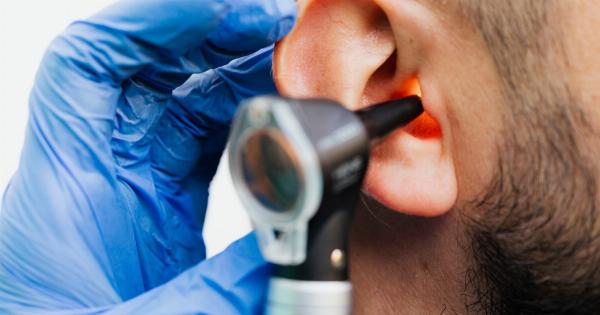Humming in the ears is a common ailment that affects millions of people worldwide. Often referred to as tinnitus, it is a condition where a person hears a continuous sound that is not present in the external environment.
This sound can be high or low-pitched, and the intensity can vary from person to person.
Although there can be several causes of humming in the ears, the most common ones include exposure to loud noises, ear infections, and aging.
In this article, we will discuss some of the common causes of tinnitus in detail and explain them with the help of images.
Noise-Induced Hearing Loss
Noise-induced hearing loss is one of the most common causes of humming in the ears. It occurs when a person is exposed to loud noises for an extended period.
Jobs that require exposure to loud machinery, such as construction sites, are a significant risk factor for developing noise-induced hearing loss.
The images below show examples of machinery that produce loud noises that can cause hearing loss.


Earwax Blockage
Earwax is a naturally occurring substance that helps protect the ear canal from dirt and other foreign objects. However, in some cases, earwax can accumulate and form a blockage, leading to tinnitus.
The image below shows an example of an earwax blockage.

Ear Infections
Ear infections are another common cause of tinnitus. They can occur in any part of the ear, including the outer, middle, and inner ear. This can cause inflammation, which can lead to tinnitus.
The images below show examples of infections in each part of the ear.



Ménière’s Disease
Ménière’s disease is a rare condition of the inner ear that can cause tinnitus, vertigo, and hearing loss. It occurs when there is a build-up of fluid in the inner ear, which can affect the balance and hearing functions of the ear.
The image below shows an example of the inner ear and fluid build-up associated with Ménière’s disease.

Pulsatile Tinnitus
Pulsatile tinnitus is a type of tinnitus that occurs when there is a rhythmic sound that matches the heartbeat. It can be caused by various factors, including high blood pressure, abnormal growths in the ear, or problems with blood vessels.
The images below show examples of high blood pressure and blood vessels associated with pulsatile tinnitus.


Medications
Certain medications can cause tinnitus as a side effect. These include antibiotics, diuretics, and cancer drugs. If you experience tinnitus after starting a new medication, you should inform your doctor immediately.
The images below show examples of antibiotics and diuretics that can cause tinnitus.


Aging
Tinnitus is more common among older individuals. As we age, our hearing capacity naturally decreases, and we become more susceptible to hearing problems. However, this does not mean that all older people will experience tinnitus.
The image below shows a graphic representation of how hearing capacity changes with age.

Conclusion
Humming in the ears can be caused by several factors, ranging from exposure to loud noises to medication side effects. It is important to understand the cause of tinnitus to treat it effectively.
If you experience tinnitus, you should consult with a medical professional to determine the underlying cause.



























